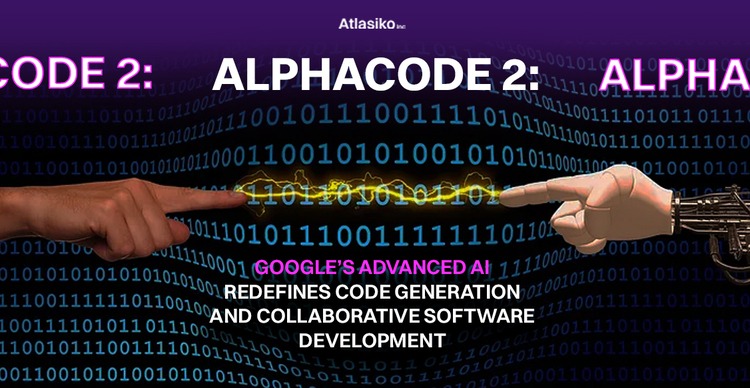Google has unveiled AlphaCode 2, an enhanced iteration of its code-generating AI model, alongside the Gemini generative AI model. Building on the foundation laid by its predecessor, AlphaCode, introduced a year ago by Google's DeepMind lab, AlphaCode 2 stands out as a formidable advancement in code generation.
AlphaCode 2 showcases superior capabilities compared to its forerunner, particularly in programming competitions hosted on Codeforces. Google reports that AlphaCode 2, proficient in Python, Java, C++, and Go, outperformed approximately 85% of competitors on average in a selected subset of contests. This is a marked improvement over the 50% success rate achieved by its predecessor in the same context.
A whitepaper on AlphaCode 2 programming reveals that it tackled 43% of problems within 10 attempts across 12 recent contests with over 8,000 participants. Notably, this is nearly double the original AlphaCode's success rate of 25%. AlphaCode 2's prowess extends to handling complex mathematical and theoretical computer science challenges, employing sophisticated techniques like dynamic programming.
Dynamic programming, as explained by DeepMind research scientist Rémi Leblond, involves breaking down a complex problem into more manageable sub-problems. Google AlphaCode AI 2 not only knows when to implement this strategy but also understands where to apply it, addressing a previous stumbling block for the initial AlphaCode.
Leblond emphasizes that AlphaCode 2 exhibits understanding, reasoning, and code solution design for problems it has never encountered before. The model leverages a family of "policy models" to generate multiple code samples, followed by a filtering process to eliminate irrelevant samples. A clustering algorithm then groups semantically similar code samples, and a scoring model selects the best candidate from the top 10 clusters as AlphaCode 2's solution to the problem.
However, like all AI models, AlphaCode AI has its limitations. The whitepaper highlights its reliance on extensive trial and error, high operational costs, and the need to filter out undesirable code samples. Speculation in the whitepaper suggests that migrating to a more robust version of Gemini, such as Gemini Ultra, could address some of these challenges.
Eli Collins, VP of product at DeepMind, hinted at the potential future integration of AlphaCode 2 into a product. Collins envisions programmers collaborating with AlphaCode 2 powered by Gemini, enhancing the model's performance by defining specific properties for the code to adhere to. This collaborative approach could position highly capable AI models as valuable tools throughout the software development process, offering assistance from problem reasoning to implementation.
If you are interested in AI, programming, and technologies, discover Atlasiko news!







